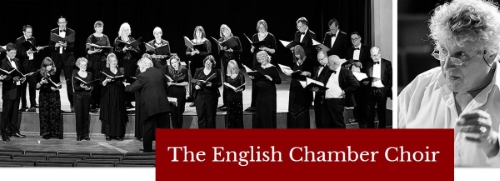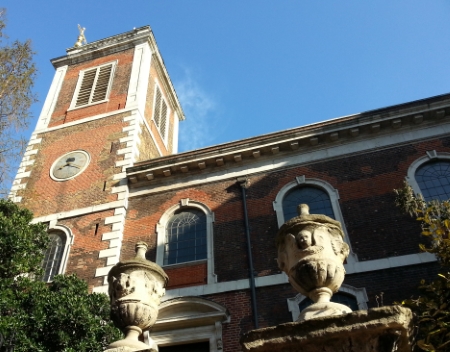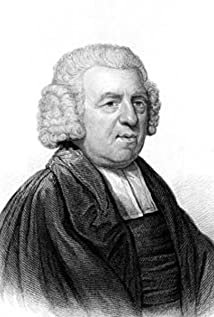BEAUTIFUL, God's grace set to music. I inserted videos or links to versions of Amazing Grace referenced in the NPR post. From NPR / WAMU and the Methodist Church Resource Hub
'Amazing Grace' was first performed on New Year's Day over 250 years ago
AYESHA RASCOE, HOST:
You know those songs that you just kind of know? You sing along without even thinking about the lyrics. We're going to explore the history of one of those songs this morning.
(SOUNDBITE OF SONG, "AMAZING GRACE")
PAUL ROBESON: (Singing) Amazing grace.
RASCOE: "Amazing Grace." The song was first performed on New Year's Day 1773, over 250 years ago. NPR's Samantha Balaban is our guide through its extraordinary history.
SAMANTHA BALABAN, BYLINE: This history begins with an unlikely author.
JAMES WALVIN: John Newton was a strange mix of a person.
BALABAN: James Walvin is a historian and the author of the new book "Amazing Grace: A Cultural History Of A Beloved Hymn." His favorite version is the one you're hearing now.
WALVIN: It's hard not to listen to Paul Robeson singing "Amazing Grace" and not feel the back of the neck tingle.
(SOUNDBITE OF SONG, "AMAZING GRACE")
ROBESON: (Singing) I see.
BALABAN: But he digresses. Back to John Newton.
WALVIN: Here is a man of God who writes a very godly hymn, but who actually was engaged in the most barbaric of personal behavior.
BALABAN: John Newton was a slave trader. He trafficked enslaved Africans to the Americas.
WALVIN: We know that he tortured slaves, tortured Africans onboard the slave ships.
BALABAN: On one voyage, Newton's ship was caught in a storm. He made it home, but barely.
WALVIN: The Lord had saved him by his grace. And that's the origins, really, of his ideas that went into "Amazing Grace."
BALABAN: Newton gave up slave trading. He became a parish rector and started writing hymns. In December 1772, he wrote "Hymn 41."
WALVIN: He wrote the words. The music comes later.
BALABAN: There's no way of knowing what that first New Year's Day performance of Newton's hymn would have sounded like, but maybe something like...
(SOUNDBITE OF SONG, "AMAZING GRACE")
ENGLISH CHAMBER CHOIR: (Singing) Amazing grace, how sweet the sound that...
BALABAN: It was this is the English Chamber Choir performing "Amazing Grace" to "Tune 14," a tune attached to Newton's words in an early hymn book.
(SOUNDBITE OF SONG, "AMAZING GRACE")
ENGLISH CHAMBER CHOIR: (Singing) But now am found.
| sermon | John Newton's 1773 New Year's Day sermon on 1 Chronicles 17:16,17 (which was accompanied by the hymn Amazing Grace, based on the same text and sermon) | continuous |
| double-sided leaflet | ||
| hymn | the words of John Newton's hymn Amazing Grace | Amazing Grace words |
| A5 flyer | Amazing Grace words with a summary of their source | A5 pdf |
| origin | comparison of: 1. Scripture verses in 1 Chronicles 17 with Newton's hymn Amazing Grace 2. Sermon with Newton's hymn Amazing Grace | table comparing Scripture verse, sermon and hymn verses |
| ppt | PowerPoint (for congregational singing) of the words (with images) for Newton's hymn Amazing Grace | Amazing Grace ppt words with images |
| video | video showing how the words for Newton's hymn Amazing Grace were drawn directly from 1 Chronicles 17:16,17 | click this link to download from vimeo |
Resources for a short concert on Amazing Grace | ||
Six of the earliest known tunes for Amazing Grace  | ||
| audio by The English Chamber Choir | music score by Guy Protheroe | background by the JNP |
BALABAN: James Walvin says "Amazing Grace" never really gained a foothold in Newton's England. But then it was published in America, where Christianity was booming.
WALVIN: In the United States, you have this kind of proliferation of nonconformist groups of Methodists, of Baptists and sects that spin out from those. And all of them, all of them sing.
(SOUNDBITE OF SONG, "AMAZING GRACE")
WILLIAM WALKER: (Singing) Was grace that taught my heart to fear.
BALABAN: But still, no one could agree on a tune. Enter William Walker, otherwise known as Singin' Billy.
WALVIN: A singing master, one of many who wandered around the early United States teaching people to sing individually and collectively.
BALABAN: Walker took Newton's hymn and paired it with a tune called "New Britain." At this point, "Amazing Grace" starts to sound familiar.
(SOUNDBITE OF SONG, "AMAZING GRACE")
SACRED HARP CHOIR: (Singing) Through many dangers, toils and snares.
BALABAN: This is the first recording of "Amazing Grace" to the tune of "New Britain," performed in 1922 by the original Sacred Harp Choir.
(SOUNDBITE OF SONG, "AMAZING GRACE")
SACRED HARP CHOIR: (Singing) ‘Tis grace hath brought me...
'Amazing Grace' first/earliest/oldest/original recording - 1922 by Original Sacred Harp Choir
BALABAN: Newton died long before he would have been able to hear this version of his hymn, but he probably still would have recognized it.
WALVIN: What Newton wrote in the 1770s is still what we sing today. It gives you some indication of how popular it was.
(SOUNDBITE OF SONG, "AMAZING GRACE")
UNIDENTIFIED MUSICAL GROUP #1: (Singing) The Lord has promised...
BALABAN: In the 1930s, the Library of Congress commissioned John Lomax, his wife Ruby and his son Alan to travel around the American South, making recordings for the Archive of American Folk Song. They found people singing "Amazing Grace" in Texas and in Alabama.
(SOUNDBITE OF SONG, "AMAZING GRACE")
UNIDENTIFIED MUSICAL GROUP #2: (Singing) But now I see.
WALVIN: They found that people sang "Amazing Grace" scattered across the United States in the most extraordinarily remote places - Black and white, rich and poor, individual, old people in their homes - these crackly old American voices of all kinds of regional accents - all singing "Amazing Grace."
(SOUNDBITE OF SONG, "AMAZING GRACE")
UNIDENTIFIED MUSICAL GROUP #2: (Vocalizing).
MELVIN BUTLER: I don't know that we know exactly when it was first sung in a Black church, but we know that hymns have been a major aspect of religious worship for African Americans.
BALABAN: Melvin Butler is an associate professor of musicology at the University of Miami.
BUTLER: People often kind of make a big deal out of the fact that the composer of the hymn was a former slave trader, but for African Americans, it's a pro-underdog song. You know, those who have been downtrodden and oppressed, you find salvation in this idea that no matter what you're going through, no matter who calls you a wretch, you have this amazing grace to rely on.
BALABAN: Reginald Golding (ph), the music director of the Howard Gospel Choir at Howard University, says it's not surprising, then, that "Amazing Grace" would become a staple of the civil rights movement.
(SOUNDBITE OF MUSIC)
REGINALD GOLDEN: When you study and look at the music of the civil rights movement, they were minded to sing songs that people would have difficulty arguing with from a lyrical standpoint.
BALABAN: Who could argue, for example, with the great gospel singer Mahalia Jackson?
(SOUNDBITE OF SONG, "AMAZING GRACE")
MAHALIA JACKSON: (Singing) Me. And grace...
Mahalia Jackson - Amazing GraceBALABAN: Jackson met Dr. Martin Luther King Jr. in 1956. She sang in Selma and at the March on Washington. And she even sang "Amazing Grace" to King over the phone at night to calm him down at the end of a long day. The song was becoming known as a balm for troubled times, and that was never more apparent than during the Vietnam War era.
JUDY COLLINS: I'm Judy Collins, and I am a singer-songwriter, poet.
BALABAN: Back in 1969, Collins was part of a group of people discussing the war in New York City. Her producer, Mark Abramson, made a suggestion.
COLLINS: He said, you know, I think you should sing something because everybody is sort of frothing at the mouth here, and something could break out that's physical. So I sang "Amazing Grace" because I knew that everybody would know a little bit of the song. And it calmed everybody down. And the next morning, Mark called me and said, you know, we've got to record this.
(SOUNDBITE OF SONG, "AMAZING GRACE")
COLLINS: (Singing) Amazing grace, how sweet the sound...
BALABAN: Judy Collins recorded this version of "Amazing Grace" at Saint Paul's Cathedral at Columbia University for her 1970 album, "Whales And Nightingales."
(SOUNDBITE OF SONG, "AMAZING GRACE")
COLLINS: (Singing) Saved a wretch like me...
It's an incantation. And at least in those moments when we're singing together, we're really together. We have no argument. We have no dissent. And that's the strength of it. And that's why I think when my version...
(SOUNDBITE OF SONG, "AMAZING GRACE")
JUDY COLLINS AND THE GLOBAL CHOIR: (Singing) And grace will lead us home.
COLLINS: ...Of it came out, and it was an acapella choir singing together, it really rang a bell with people all over the world.
(SOUNDBITE OF SONG, "AMAZING GRACE")
COLLINS AND THE GLOBAL CHOIR: (Singing) When we've been there 10,000 years...
Judy Collins - Amazing Grace (Best Version) from Whales And Nightingales
BALABAN: It was also a huge commercial success. And it would quickly be followed by another.
(SOUNDBITE OF ARCHIVED RECORDING)
UNIDENTIFIED PERSON #1: The next song needs no introduction.
BALABAN: In 1972, the Queen of Soul, Aretha Franklin, recorded her version at the New Temple Missionary Baptist Church in Los Angeles.
(SOUNDBITE OF ARCHIVED RECORDING)
ARETHA FRANKLIN: (Singing) Ahhhh (ph).
(APPLAUSE)
FRANKLIN: Ama (ph)...
(APPLAUSE)
BALABAN: It's the same song but transformed in the African American tradition, says Melvin Butler.
BUTLER: Even the first syllable is almost a full 10 seconds long, and then it's like almost a whole minute before she gets through the phrase, amazing grace, how sweet the sound.
(SOUNDBITE OF ARCHIVED RECORDING)
FRANKLIN: (Singing) ...zing (ph)...
BUTLER: Because she's interjecting moans and she's using what we call melisma...
(SOUNDBITE OF ARCHIVED RECORDING)
FRANKLIN: (Singing) Amazing grace...
BUTLER: ...You know, multiple pitches on a single syllable.
(SOUNDBITE OF ARCHIVED RECORDING)
FRANKLIN: (Vocalizing)
(APPLAUSE)
Aretha Franklin - Amazing Grace (Live at New Temple Missionary Baptist Church, 1972)
BUTLER: It's one of the throughlines between the blues and gospel music - right? - this idea of, you know, telling a story, but moaning. You know, you're expressing heartache on some level, but you're capturing something that the words can't express. A lot of times in Black churches, you'll hear people even interject or shout out, take your time. You know, they're encouraging this kind of individuality in performance, and it's become one of the hallmarks of this song in particular, whether it's Diana Ross or Jennifer Hudson and certainly Aretha Franklin. And even Barack Obama's performance demonstrates some of this.
(SOUNDBITE OF ARCHIVED RECORDING)
BARACK OBAMA: That's what I felt this week. An open heart.
BALABAN: In 2015, Black worshippers were targeted because of their race. Nine people were murdered during Bible study at Emanuel AME Church in Charleston. President Barack Obama flew to South Carolina to deliver the eulogy for Pastor Clementa Pinckney.
(SOUNDBITE OF ARCHIVED RECORDING)
OBAMA: If we can tap that grace...
(APPLAUSE)
OBAMA: ...Everything can change.
UNIDENTIFIED PERSON #2: All right.
BALABAN: Author James Walvin says it was this moment that made him want to write a book about the song.
(SOUNDBITE OF ARCHIVED RECORDING)
OBAMA: Amazing Grace.
WALVIN: As he spoke, he stopped.
(SOUNDBITE OF ARCHIVED RECORDING)
OBAMA: (Singing) Amazing Grace.
WALVIN: Waited a second and then began to sing "Amazing Grace."
(SOUNDBITE OF ARCHIVED RECORDING)
OBAMA: (Singing) Amazing grace, how sweet the sound...
BALABAN: Musicologist Melvin Butler.
BUTLER: Obama is not - I don't think he would say he's a virtuosic vocalist. But if you listen to those first few phrases, he does sort of inject a bit of blues sensibility into that song. There's a little bit of a moan, and it's like, this is Obama saying, I'm one of you. For me, personally, it was a beautiful moment, and I think it will go down in history.
(SOUNDBITE OF ARCHIVED RECORDING)
BARACK OBAMA AND UNIDENTIFIED CROWD: (Singing) I once was lost...
Obama Sings 'Amazing Grace' During Pinckney Eulogy
BALABAN: The history of "Amazing Grace" is already full of remarkable moments. But here's just one more. In 1971, inspired by the commercial success of Judy Collins's single, the Royal Scots Dragoon Guards recorded a bagpipe version.
(SOUNDBITE OF ROYAL SCOTS DRAGOON GUARDS' "AMAZING GRACE")
BALABAN: "Amazing Grace" had never really been recorded this way without lyrics, says James Walvin, author of "Amazing Grace: A Cultural History Of A Beloved Hymn."
WALVIN: And thereafter, the kind of haunting refrain of pipers playing "Amazing Grace" becomes a theme that people want to use at funerals.
💥AMAZING GRACE💥💥Royal Scots Dragoon Guards💥
A view of the Scottish country taken from across Scotland. Accompanied by the music Amazing Grace performed by The Royal Scots Dragoon Guards.from the Spirit Of The Glen Album.
BALABAN: It's since played at events marking September 11, after the Oklahoma City bombing, at presidential funerals, regular funerals and to honor the memory of firefighters at the Firemen's Memorial in New York City, located right down the street from where Judy Collins lives.
COLLINS: And every year, thousands of firefighters come to the Upper West Side. And they circle that monument, and they sing "Amazing Grace." And I can hear it in my home. And I go out on the street, and I go down to join their crowds and listen to them sing "Amazing Grace." That's what moves me the most.
BALABAN: For a song with a 250-year history, the beauty of "Amazing Grace" is its ability to shapeshift. It's a religious text or not. It's a hymn or a gospel song or a folk song. It spurs protesters to march forward or calms an angry crowd. It's a song of hope or mourning or celebration. It's a song you can sing with others or listen to in the quiet of your own home.
Samantha Balaban, NPR News.
(SOUNDBITE OF ROYAL SCOTS DRAGOON GUARDS' "AMAZING GRACE")
NPR transcripts are created on a rush deadline by an NPR contractor. This text may not be in its final form and may be updated or revised in the future. Accuracy and availability may vary. The authoritative record of NPR’s programming is the audio record.



No comments:
Post a Comment